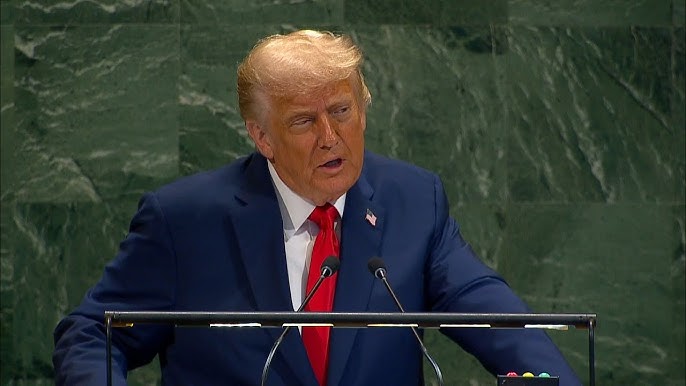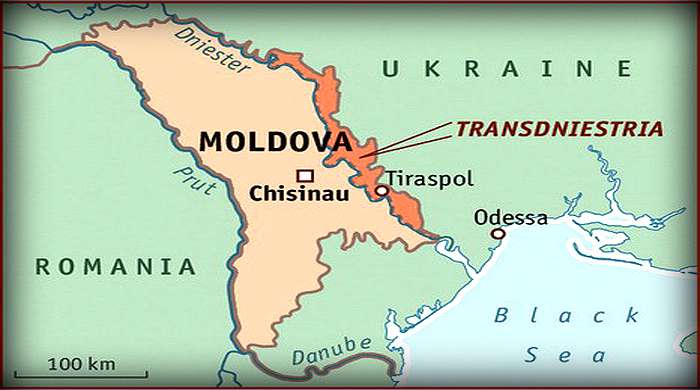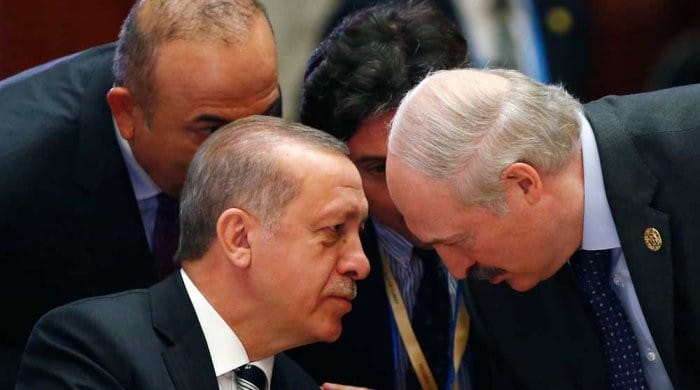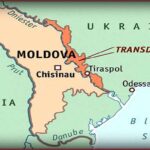President Donald Trump said that recognition of a Palestinian state by a slate of Washington’s allies was a “reward” to armed group Hamas for “horrible atrocities”.
“This would be a reward for (Hamas’s) horrible atrocities, including October 7, even while they refuse to release the hostages or accept a ceasefire,” Mr Trump said in a speech to the UN General Assembly this afternoon.
Dozens of world leaders gathered yesterday to embrace a Palestinian state, a landmark diplomatic shift that faces fierce resistance from Israel and its close ally the United States.
Yesterday, France recognised a Palestinian state, joining Western allies such as Britain and Canada who made the same historic move and were rebuked by Israel.
Israeli attacks have killed more than 65,000 people in Gaza since October 2023, according to local health authorities, while global hunger monitor IPC determined last month that an entirely human-made famine is currently taking place in Gaza.
The most far-right government in Israel’s history has declared there will be no Palestinian state as it pushes on with its fight against militant group Hamas in Gaza following the 7 October 2023 attack on Israel that killed some 1,200 people, according to Israeli tallies.
Mr Trump also bluntly said that European allies were going to “hell” because of immigration as he touted his own hardline crackdown.
“It’s time to end the failed experiment of open borders,” Mr Trump said at the General Assembly.
“Your countries are going to hell,” he said, also attacking London’s Mayor Sadiq Khan, the first Muslim mayor of a Western capital.
Mr Trump called climate change the “greatest con job ever” and alleged that the concept of carbon footprints was “a hoax”.
“Climate change – it’s the greatest con job ever perpetrated on the world, in my opinion,” he said at the General Assembly.
“(The) carbon footprint is a hoax made up by people with evil intentions, and they’re heading down a path of total destruction.”
Since taking office in January, Mr Trump has upended US foreign policy, slashing foreign aid, imposing tariffs on friend and foe alike and cultivating warmer – if volatile – relations with Russia.
At the same time he has sought, so far with only limited success, to solve some of the world’s most intractable conflicts.
Some 150 heads of state or government are expected to address the chamber this week, including Mr Trump.
Mr Trump is speaking eight months into a second term marked by severe aid cuts that have sparked humanitarian worries and have raised doubts about the UN’s future, prompting UN Secretary-General Antonio Guterres to try to trim costs and improve efficiency.
But according to planning documents reviewed by Reuters, the Trump administration plans to call this week for sharply narrowing the right to asylum, seeking to undo the post-World War II framework around humanitarian protection.
Mr Trump’s more restrictive stance would include requiring asylum-seekers to claim protection in the first country they enter, not a nation of their choosing, a State Department spokesperson said.
Mr Guterres and Mr Trump are expected to meet formally in New York for the first time since Mr Trump returned to office in January.
Mr Trump describes the UN as having “great potential” but says it has to get its “act together”.
He has maintained the same wary stance on multilateralism that was a hallmark of his first term from 2017 to 2021 and also accused the world body of failing to help him try to broker peace in various conflicts.
The General Assembly takes place as the war between Israel and Hamas approaches its second anniversary on 7 October. Israeli Prime Minister Benjamin Netanyahu is due the address the General Assembly on Friday.
Ukrainian President Volodymyr Zelensky and Russian Foreign Minister Sergei Lavrov will also address the General Assembly.
Mr Trump and Mr Zelensky are expected to meet today.
The US president will also hold a bilateral meeting with Argentina’s Javier Milei and a multilateral meeting with the leaders of Qatar, Saudi Arabia, Indonesia, Turkey, Pakistan, Egypt, the United Arab Emirates and Jordan.
US dismantles possible mobile network threat to UN summit
Meanwhile, the US Secret Service said it had dismantled a network of more than 100,000 SIM cards that could have crashed New York’s telecommunications network ahead of the UN General Assembly, linking the threat to “nation-state” actors.
“In addition to carrying out anonymous telephonic threats, these devices could be used to conduct a wide range of telecommunications attacks,” the agency said in a statement.
“This includes disabling cell phone towers, enabling denial of services attacks and facilitating anonymous, encrypted communication between potential threat actors and criminal enterprises.”
The UN’s high-level general debate kicks off in New York today.
The US Secret Service said the devices it seized were located within a 56-kilometre radius of the UN General Assembly.
“Given the timing, location and potential for significant disruption to New York telecommunications posed by these devices, the agency moved quickly to disrupt this network,” the statement said.
It said that while forensic examination of the devices and a broader investigation was ongoing, “early analysis indicates cellular communications between nation-state threat actors and individuals that are known to federal law enforcement”.














